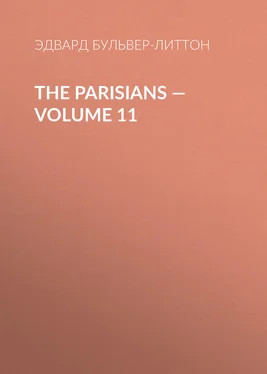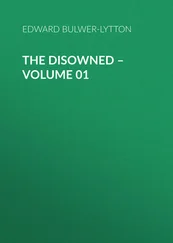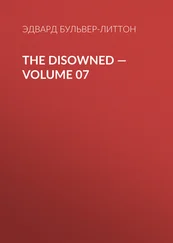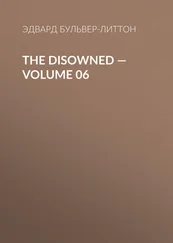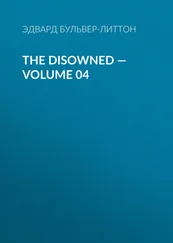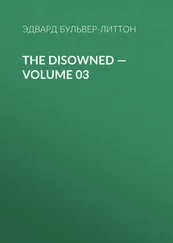Эдвард Бульвер-Литтон - The Parisians — Volume 11
Здесь есть возможность читать онлайн «Эдвард Бульвер-Литтон - The Parisians — Volume 11» — ознакомительный отрывок электронной книги совершенно бесплатно, а после прочтения отрывка купить полную версию. В некоторых случаях можно слушать аудио, скачать через торрент в формате fb2 и присутствует краткое содержание. Жанр: foreign_prose, literature_19, Европейская старинная литература, foreign_antique, на английском языке. Описание произведения, (предисловие) а так же отзывы посетителей доступны на портале библиотеки ЛибКат.
- Название:The Parisians — Volume 11
- Автор:
- Жанр:
- Год:неизвестен
- ISBN:нет данных
- Рейтинг книги:4 / 5. Голосов: 1
-
Избранное:Добавить в избранное
- Отзывы:
-
Ваша оценка:
- 80
- 1
- 2
- 3
- 4
- 5
The Parisians — Volume 11: краткое содержание, описание и аннотация
Предлагаем к чтению аннотацию, описание, краткое содержание или предисловие (зависит от того, что написал сам автор книги «The Parisians — Volume 11»). Если вы не нашли необходимую информацию о книге — напишите в комментариях, мы постараемся отыскать её.
The Parisians — Volume 11 — читать онлайн ознакомительный отрывок
Ниже представлен текст книги, разбитый по страницам. Система сохранения места последней прочитанной страницы, позволяет с удобством читать онлайн бесплатно книгу «The Parisians — Volume 11», без необходимости каждый раз заново искать на чём Вы остановились. Поставьте закладку, и сможете в любой момент перейти на страницу, на которой закончили чтение.
Интервал:
Закладка:
"There are no other letters, then, from this writer?" asked Graham; "and no further clue as to her existence?"
"None that I have discovered; and I see now why I preserved these letters. There is nothing in their contents not creditable to my poor father. They show how capable he was of good-natured disinterested kindness towards even a distant relation of whom he could certainly not have been proud, judging not only by his own pencilled note, or by the writer's condition as a governess, but by her loose sentiments as to the marriage tie. I have not the slightest idea who she could be. I never at least heard of one connected, however distantly, with my family, whom I could identify with the writer of these letters."
"I may hold them a short time in my possession?"
"Pardon me a preliminary question. If I may venture to form a conjecture, the object of your search must be connected with your countryman, whom the lady politely calls the 'wretched Englishman;' but I own I should not like to lend, through these letters, a pretence to any steps that may lead to a scandal in which my father's name or that of any member of my family could be mixed up."
"Marquis, it is to prevent the possibility of all scandal that I ask you to trust these letters to my discretion."
" Foi de gentilhomme ?"
" Foi de gentilhomme !"
"Take them. When and where shall we meet again?"
"Soon, I trust; but I must leave Paris this evening. I am bound to Berlin in quest of this Countess von Rudesheim: and I fear that in a very few days intercourse between France and the German frontier will be closed upon travellers."
After a few more words not worth recording, the two young men shook hands and parted.
CHAPTER V
It was with an interest languid and listless indeed, compared with that which he would have felt a day before, that Graham mused over the remarkable advances towards the discovery of Louise Duval which were made in the letters he had perused. She had married, then, first a foreigner, whom she spoke of as noble, and whose name and residence could be easily found through the Countess von Rudesheim. The marriage did not seem to have been a happy one. Left a widow in reduced circumstances, she had married again, evidently without affection. She was living so late as 1861, and she had children living is 1859: was the child referred to by Richard King one of them?
The tone and style of the letters served to throw some light on the character of the writer: they evinced pride, stubborn self-will, and unamiable hardness of nature; but her rejection of all pecuniary aid from a man like the late Marquis de Rochebriant betokened a certain dignity of sentiment. She was evidently, whatever her strange ideas about her first marriage with Richard King, no vulgar woman of gallantry; and there must have been some sort of charm about her to have excited a friendly interest in a kinsman so remote, and a man of pleasure so selfish, as her high-born correspondent.
But what now, so far as concerned his own happiness, was the hope, the probable certainty, of a speedy fulfilment of the trust bequeathed to him? Whether the result, in the death of the mother, and more especially of the child, left him rich, or, if the last survived, reduced his fortune to a modest independence, Isaura was equally lost to him, and fortune became valueless. But his first emotions on recovering from the shock of hearing from Isaura's lips that she was irrevocably affianced to another, were not those of self-reproach. They were those of intense bitterness against her who, if really so much attached to him as he had been led to hope, could within so brief a time reconcile her heart to marriage with another. This bitterness was no doubt unjust; but I believe it to be natural to men of a nature so proud and of affections so intense as Graham's, under similar defeats of hope. Resentment is the first impulse in a man loving with the whole ardour of his soul, rejected, no matter why or wherefore, by the woman by whom he had cause to believe he himself was beloved; and though Graham's standard of honour was certainly the reverse of low, yet man does not view honour in the same light as woman does, when involved in analogous difficulties of position. Graham conscientiously thought that if Isaura so loved him as to render distasteful an engagement to another which could only very recently have been contracted, it would be more honourable frankly so to tell the accepted suitor than to leave him in ignorance that her heart was estranged. But these engagements are very solemn things with girls like Isaura, and hers was no ordinary obligation of woman-honour. Had the accepted one been superior in rank-fortune—all that flatters the ambition of woman in the choice of marriage; had he been resolute, and strong, and self-dependent amid the trials and perils of life—then possibly the woman's honour might find excuse in escaping the penalties of its pledge. But the poor, ailing, infirm, morbid boy-poet, who looked to her as his saving angel in body, in mind, and soul-to say to him, "Give me back my freedom," would be to abandon him to death and to sin. But Graham could not of course divine why what he as a man thought right was to Isaura as woman impossible: and he returned to his old prejudiced notion that there is no real depth and ardour of affection for human lovers in the poetess whose mind and heart are devoted to the creation of imaginary heroes. Absorbed in reverie, he took his way slowly and with downcast looks towards the British embassy, at which it was well to ascertain whether the impending war yet necessitated special passports for Germany.
" Bon-jour, cher ami ," said a pleasant voice; "and how long have you been at Paris?"
"Oh, my dear M. Savarin! charmed to see you looking so well! Madame well too, I trust? My kindest regards to her. I have been in Paris but a day or two, and I leave this evening."
"So soon? The war frightens you away, I suppose. Which way are you going now?"
"To the British embassy."
"Well, I will go with you so far—it is in my own direction. I have to call at the charming Italian's with my congratulations—on news I only heard this morning."
"You mean Mademoiselle Cicogna—and the news that demands congratulations —her approaching marriage!"
" Mon Dieu ! when could you have heard of that?"
"Last night at the house of M. Duplessis."
" Parbleu ! I shall scold her well for confiding to her new friend Valerie the secret she kept from her old friends, my wife and myself."
"By the way," said Graham, with a tone of admirably-feigned indifference, "who is the happy man? That part of the secret I did not hear."
"Can't you guess?"
"NO."
"Gustave Rameau."
"Ah!" Graham almost shrieked, so sharp and shrill was his cry. "Ah! I ought indeed to have guessed that!"
"Madame Savarin, I fancy, helped to make up the marriage. I hope it may turn out well; certainly it will be his salvation. May it be for her happiness!"
"No doubt of that! Two poets-born for each other, I dare say. Adieu, my dear Savarin! Here we are at the embassy."
CHAPTER VI
That evening Graham found himself in the coupe of the express train to Strasbourg. He had sent to engage the whole coupe to himself, but that was impossible. One place was bespoken as far as C———-, after which Graham might prosecute his journey alone on paying for the three places.
When he took his seat another man was in the further corner whom he scarcely noticed. The train shot rapidly on for some leagues. Profound silence in the coupe, save at moments those heavy impatient sighs that came from the very depths of the heart, and of which he who sighs is unconscious, burst from the Englishman's lips, and drew on him the observant side-glance of his fellow-traveller.
Читать дальшеИнтервал:
Закладка:
Похожие книги на «The Parisians — Volume 11»
Представляем Вашему вниманию похожие книги на «The Parisians — Volume 11» списком для выбора. Мы отобрали схожую по названию и смыслу литературу в надежде предоставить читателям больше вариантов отыскать новые, интересные, ещё непрочитанные произведения.
Обсуждение, отзывы о книге «The Parisians — Volume 11» и просто собственные мнения читателей. Оставьте ваши комментарии, напишите, что Вы думаете о произведении, его смысле или главных героях. Укажите что конкретно понравилось, а что нет, и почему Вы так считаете.
